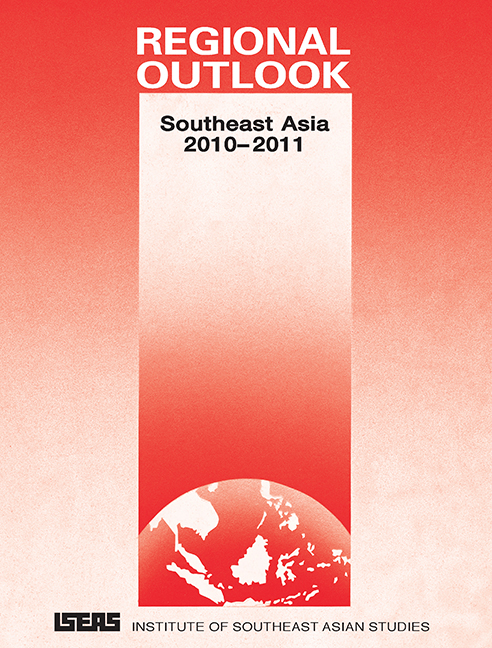Preface
Published online by Cambridge University Press: 21 October 2015
Summary
This nineteenth annual edition of Regional Outlook continues the tradition of the series in reviewing the political and economic trends likely to inform developments in Southeast Asia in the near-term future. With its brief and accessible, but rigorous and well-informed, analyses of the region, it is a unique resource for readers interested in ASEAN and its member states and also in the wider region. The target readership is broad: businesspeople, professionals, diplomats, security specialists and others who follow Southeast Asian affairs. Stakeholders in those affairs all over the world have long recognized the value of the Regional Outlook series, and constituted its loyal readership. The Regional Outlook also includes some specially commissioned thematic contributions. Thus it examines this year the state of the maritime sector, recent initiatives to deepen and broaden relations between Southeast Asia and South Korea, harnessing carbon markets in Southeast Asia, and the nature and implications of a renewed interest in nuclear power in the region.
The heart of Regional Outlook nevertheless remains the sections looking ahead to what 2010 and 2011 may have in store for Southeast Asia and for ASEAN. On the political front, highlights this year include the encouraging implications of the successful 2009 Indonesian elections, the consolidation in Malaysia both of the premiership of Najib Abdul Razak and of a newly competitive two-coalition political order, and Myanmar's progress towards elections next year. Less encouraging have been Thailand's continued lack of success in bringing peace to its far South, its tensions with Cambodia, and the continuing spectre of political violence in the southern Philippines. The successful APEC summit held in Singapore in November 2009 affirmed both Southeast Asia's centrality to an international economic order defined by prosperity through trade, and the region's success in building partnerships with both China and the USA in order to further global economic integration.
- Type
- Chapter
- Information
- Regional OutlookSoutheast Asia 2010-2011, pp. vii - viiiPublisher: ISEAS–Yusof Ishak InstitutePrint publication year: 2010

